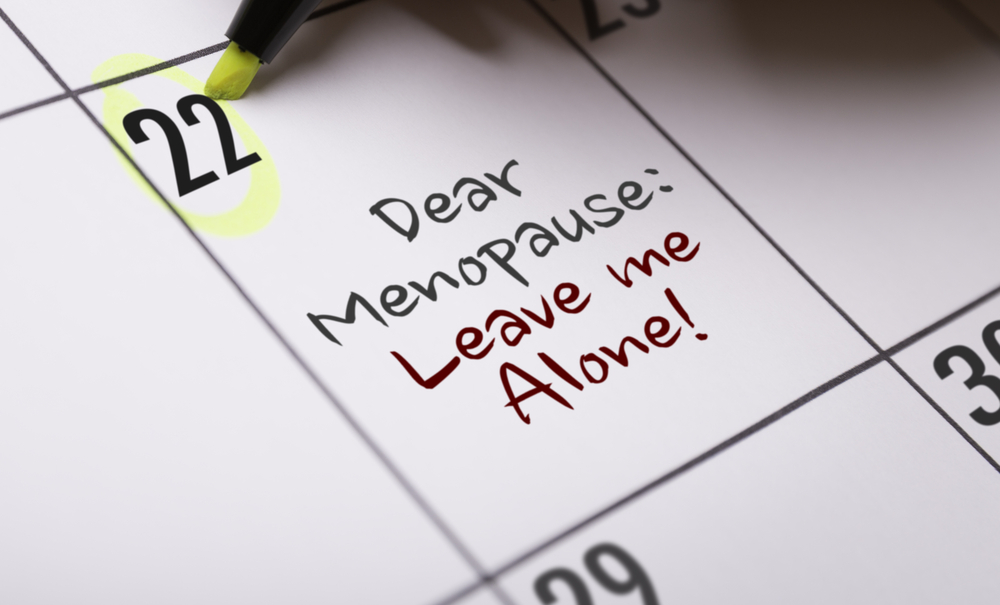
What is the Best Menopause Treatment?
What Is The Best Treatment For Menopause?
Menopause is the period of a woman’s life when reproductive hormones experience a decline. This typically begins during the 40s. While often called “menopause,” this period leading up to menopause is the perimenopausal period. A woman is considered “in menopause” when they have not had a period for at least 12 months. Women usually experience menopause between 45-50 years old. If you’ve had surgery like a hysterectomy and your ovaries were removed, this will cause you to enter menopause immediately, regardless of age.
Some women transition to menopause without many symptoms other than ceasing to have periods, but several symptoms can occur for other women. These include:
- Hot flashes
- Insomnia
- Painful sex
- Mood changes
- Depression
- Anxiety
- Weight gain
- Heart disease
- osteoporosis
3 Stages of Menopause
There are three distinct stages of menopause. These include:
1. Perimenopause
For several years before your periods’ stop, the ovaries begin to make less estrogen. The average length of perimenopause is four years. During perimenopause, you might experience irregular periods, hot flashes, sleep problems, vaginal or bladder problems, and decreased fertility.
2. Menopause
It’s been a year since you’ve had a period. Your ovaries no longer release eggs or estrogen.
3. Postmenopause
The years following menopause. You might continue to have hot flashes, night sweats, and health risks like heart disease and osteoporosis caused by decreased estrogen levels.
How Do I know I’m in Menopause?
Your healthcare provider can check blood levels of hormones that can indicate where you are in the menopause process. These tests might include the following:
- Follicle-stimulating hormone (FSH). This level rises as you near menopause.
- A type of estrogen that goes down during menopause.
- Thyroid hormones. Some thyroid conditions alter your period and can mimic symptoms of menopause.
However, a full hormone panel may also test other types of estrogen, progesterone, and testosterone levels.
Menopause Treatment
Some women choose to let menopause occur and not treat the symptoms, but if menopause symptoms are causing problems, you might want to consider treatment. Some of the treatments available include:
Hormone Replacement Therapy (HRT)
HRT is medication to replace the hormones your body is no longer making. Hormone replacement can take several forms. It might be given in a pill, topical cream or gel, vaginal insert, injection, or pellets. HRT can be synthetic (made in a lab) or bio-identical.
Commonly replaced hormones include estrogen, progesterone, and testosterone. Estrogen helps decrease hot flashes and vaginal dryness. Estrogen also prevents bone loss.
Beyond medication, some lifestyle strategies can help you manage menopause.
- Hot flashes. Dress in layers and keep a cool glass of water ready. You might be able to pinpoint what triggers your hot flashes. For some women, triggers are things like hot beverages, caffeine, spicy foods, stress, a hot room, or the weather.
- Vaginal dryness. Try an over-the-counter water-based vaginal lubricant or a silicone-based lubricant moisturizer. Staying sexually active helps with vaginal discomfort by maintaining blood flow to the vaginal tissue.
- Get plenty of sleep. Avoid drinking caffeine or too much alcohol, which can interrupt your sleep cycles. Don’t exercise right before bedtime. If hot flashes wake you up, keep your room cool and dress comfortably at night.
- Use relaxation techniques. Practices like breathing exercises, guided imagery, and massage can improve menopausal symptoms.
- Strengthen your pelvic floor muscles. Kegel exercises are used to help control urinary incontinence or bladder leakage.
- Stop smoking. Smoking increases the risks of heart disease, stroke, osteoporosis, and cancer. It can also increase hot flashes and cause earlier menopause.
- Exercise regularly and eat a healthy diet. These practices protect against heart disease, diabetes, and other age-related conditions.
There are many treatments available to manage menopausal symptoms. The BEST treatment is the one that controls your symptoms effectively and lets you remain active and feel your best. No matter which symptoms are bothering you, we can customize a treatment plan to address and improve your health. If you’ve been dealing with menopausal symptoms, call us at Vitality Aesthetics and Regenerative Medicine and let our specialists help you manage your health.


